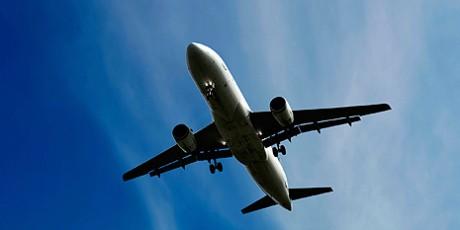The European Commission has decided to request the correct application by the Portuguese authorities of the Directive on the opening-up of the groundhandling market in Portuguese airports. The European rules on access to some air-side handling services (baggage handling, ramp handling and freight and mail handling between terminals and aircraft) are not being complied with, particularly at Lisbon, Porto and Faro airports. The Commission’s request to Portugal in the form of a reasoned opinion is the second step of the EU infringement procedure. In the absence of a satisfactory response within two months, the Commission may refer Portugal to the European Court of Justice.
The European rules
Under Council Directive 96/67/EC adopted in 1996, the European Union has opened up the groundhandling services market at airports, which includes the checking-in of passengers, baggage handling and the refuelling of aircraft.
The Directive allows Member States to limit the opening-up of the market to a maximum number of suppliers for four categories of groundhandling. These categories are: ramp handling (marshalling aircraft, loading and unloading food and beverages, etc.), baggage handling, air-side freight and mail handling and fuel and oil handling. This limitation is however subject to compliance with certain criteria, particularly in terms of selecting suppliers (need for a transparent and non-discriminatory European call for tender).
In addition, one of the suppliers authorised to provide services must be independent of the airport operating company and the main airline operating in the airport.
The problem in Portugal
Portugal has limited the number of groundhandling service suppliers to two in Lisbon, Porto and Faro airports, which is possible on the basis of Directive 96/67. However, the Commission considers that the selection of handling suppliers for three categories (baggage handling, ramp handling and freight and mail handling between the terminals and aircraft) was not conducted in accordance with the European Directive. If effective and fair competition is to be maintained where the number of suppliers of groundhandling services is limited, the latter need to be chosen according to a transparent and impartial procedure. Portugal sought an investor financed by the capital of an existing operator instead of publishing a call for tender enabling competition between different suppliers of groundhandling services. Certain key criteria of the procedure have therefore not been complied with: the mandatory consultation of the airlines using these airports did not take place; the supplier selected has not been selected for a maximum market-access period of seven years.
In addition, one of the suppliers must be independent of the airport operating company and the main airline operating in the airport. This is not the case in Lisbon and Porto since the service suppliers are a subsidiary of the managing body of the airport and a subsidiary of the main airline (TAP) operating in the airport, known as SPdH. Despite the fact that TAP is only a minority shareholder in SPdH, a series of aspects suggest that the situation is not conducive to guaranteeing the long-term independence of SPdH from TAP.
Complaints were submitted to the European Commission in summer 2009. The complaints have been examined and information exchanged with the Portuguese authorities, including a letter of formal notice on 25 November 2010.
The practical effects of the incorrect application of the Directive
The absence of effective competition for the provision of groundhandling services in the airports in question (Lisbon, Porto and Faro) could result in additional costs and lower service quality for airlines, which could in turn affect passengers and freight carriers.
Groundhandling is a key link in the air transport chain. It includes all ground services carried out on behalf of airlines (including the check-in and transport of passengers; baggage handling; refuelling and re-oiling of aircraft; catering services; cleaning, de-icing and marshalling of aircraft; freight and mail handling, etc.).
Even if they are not always visible, passengers’ experiences in airports and in flight are dependent to a large extent on the smooth operation of groundhandling services, whether this is in terms of physical comfort on board the plane (cleaning of the cabin, for example), reception of passengers on arrival at the airport (passenger and baggage check-in), or in terms of the prerequisites for the operation of safe and secure flights (refuelling and baggage loading, calculation of weight distribution in the aircraft, de-icing where necessary, etc.).
Next step
Portugal has two months to respond to the Commission’s request. In the absence of a satisfactory response, the Commission may refer the case to the European Court of Justice.
The latest information on infringement proceedings for all Member States can be found at:
http://ec.europa.eu/community_law/index_fr.htm
For EU infringement procedures, see MEMO/11/312.
Source – European Commission.


No responses yet